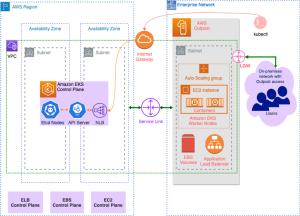
WASHINGTON, December 1, 2023 – All five Federal Communications Commissioners took part in a lengthy and at times contentious House oversight hearing on Thursday.
Commissioners urged Congress to restore the FCC’s authority to action spectrum, which expired in March and left the nation’s airwaves in limbo, and to fund the Affordable Connectivity Program, the low-income internet subsidy set to dry up in April of next year.
GOP lawmakers FCC Republicans also took the chance to slam efforts by the commission’s Democratic majority.

The discussion touched on other issues including robocall prevention, rip and replace funding, and pole attachments.
Robocalls
The commission has been taking action on preventing robocalls this year, kicking off an inquiry into using artificial intelligence to detect fraud, blocking call traffic from 20 providers for lax enforcement policies and issuing hundreds of millions in fines. In August the commission also expanded the STIR/SHAKEN regime – a set of measures to confirm caller identities – to all providers who handle call traffic.
FCC Chairwoman Jessica Rosenworcel asked multiple times for three Congressional actions she said would help the commission crack down on scam calls: a new definition for “autodialer,” the ability to collect fines, and access to Bank Secrecy Act information.
The Supreme Court limited the definition of autodialers in 2021 to devices that store or produce phone numbers with random or sequential number generators. That leaves the scope of the Telephone Consumer Protection Act, which guides the FCC’s authority, “stuck in the nineties,” according to Rosenworcel.

“A lot of scam artists are using technologies no longer covered” by the act, she said. “We can’t go after them.”
On collecting robocall fines, that authority currently rests with the Department of Justice, and Rosenworcel is not the first to tell Congress the agency’s enforcement has been lax. Industry groups at an October Senate hearing cited slow DOJ action as a major reason FCC fines on the issue often go uncollected.
The Bank Secrecy Act requires financial institutions to keep records on certain transactions to help law enforcement agencies track money laundering and other criminal activity. The FCC cannot access information governed by the act, which Rosenworcel said would help the commission go after repeat scammers.
“These scam artists set up one company, we shut them down, they go and set another one up,” she said.
Rip and replace
Commissioners urged Congress to fund the rip and replace program. Congress allocated $1.9 billion to reimburse broadband companies for replacing network equipment from Chinese companies deemed to be national security threats, mainly Huawei and ZTE.
The FCC was tasked with overseeing the program and found in 2022 that another $3 billion would be needed to get the work done. The Biden administration joined a chorus of lawmakers and broadband companies in calling for Congress to fill the gap, but legislation on the issue has yet to be passed.
“We’re providing 40 cents on the dollar to a lot of small and rural carriers,” said Rosenworcel. “They need more funds to get the job done.”
The commission has been granting extensions to providers unable to get the work done on time. In addition to supply chain issues, some small providers cite a lack of funding as the reason they’re unable to replace insecure equipment.
Pole attachments
Commissioners expressed a willingness to shift some of the burden of utility pole replacements off of broadband providers as they attach new equipment.
“If a pole is getting replaced,” Commissioner Brendan Carr said, “there’s probably a role for the FCC to say that the pole owner should bear somewhere north of the cost of $0.”
The commission has authority in 26 states over most pole attachment deals between utility pole owners and telecommunications companies looking to expand their networks. The issue of who pays for poles that need to be replaced to accommodate more communications equipment is contentious, with telecoms arguing utilities force them to pay for replacing already junk poles.
After spending years sifting through thousands of comments, commissioners have apparently been persuaded. Rules up for a vote at the commission’s December meeting would limit the scenarios in which utilities could pass full replacement costs on to attachers.
Broadband funding map
Rosenworcel repeatedly asked lawmakers to work with the commission on ensuring its broadband funding map is kept up to date.
The FCC launched its funding map in May to keep track of the myriad federal broadband subsidy efforts and avoid funding the same areas multiple times. The Department of Agriculture, the FCC, and the Treasury Department each oversee separate broadband funding programs, in addition to the Commerce Department’s upcoming $42.5 billion broadband expansion effort.
The commission has signed memoranda of understanding with those agencies on providing data for the funding map, but Rosenworcel asked the subcommittee for help ensuring the agencies follow through and respond to FCC requests for their funding data.
“If you could help us make sure those other agencies respond to us with data, you’ll see where there are problems, duplication, areas we haven’t reached,” she said.


